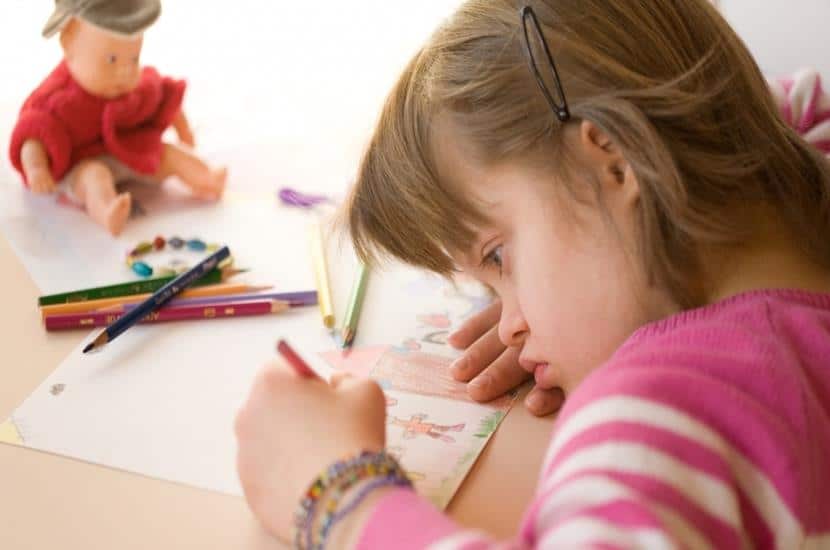
March 21 is World Down Syndrome Day, so the world becomes more aware of this syndrome since they are incredible people who can surprise you. There are many myths about Down Syndrome and it is important to know them to know what is true and what is not. So today, we want to explain some myths and truths about this syndrome.
Do not lose detail because below you will learn much more, it is even possible that you will discover things that you did not know about Down Syndrome.
There is only one type of Down syndrome
Truth. Many people know the cause of Down Syndrome: A third copy of chromosome 21 appears, causing a person to have 47 chromosomes instead of the more common 46. This type of Down Syndrome is sometimes called trisomy 21 and accounts for approximately 95% of all Down Syndrome cases according to the National Down Syndrome Society.
Of the remaining 5%, 4% is caused by translocation, or the insertion of a complete or partial copy of chromosome 21 in most cases, chromosome 14 (therefore, the person will have the characteristics of Down syndrome while has 46 chromosomes). The remaining 1% is what is known as Mosaic Down Syndrome in which the division of the chromosomes is wrong and, therefore, the replication of chromosome 21 occurs later in development and some cells have 46 chromosomes with two copies chromosome 21, while some have 47 chromosomes with three copies of 21.

Down syndrome is contagious
Fake. You cannot spread Down Syndrome since it is not an infectious or contagious disease. If you are in contact with people with Down syndrome, it does not mean that you will also have this syndrome.
Down syndrome is a genetic condition, there is no way you can get it after you are born, it is part of a genetic makeup.
All people with Down syndrome are happy
There are people who think that all people with Down Syndrome are happy and always ready to give love. Or that they love everyone for their condition. However, people with Down Syndrome experience the same range of feelings and moods as others.
They may also feel sad, anxious, have depression ... They experience positive and negative feelings just like anyone else, because they are also people, just like you. They just have a different genetic makeup.

People with Down Syndrome have it because their mothers were older
False true. It is true that increasing maternal age is correlated with an increased chance of developing Down syndrome. At 35 years of age the probability of having a child with Down syndrome is 1 in 350, at 45 years it is 1 in 30.
But it must be taken into account that many people with Down Syndrome are born to mothers under 35 years of age, between 50 and 80%. Therefore, Mothers of all ages, from teenagers to older mothers, are likely to have a child with Down syndrome.
People with Down Syndrome cannot learn
Fake. People with Down Syndrome can be much smarter than society thinks. While it is true that many people with Down syndrome may have intellectual disabilities and may have difficulties in schooling, there is much that can be done to improve their ability to learn.

Hearing or visual difficulties can be treated, teaching sign language when that can be helpful (even for people with Down syndrome, some find it easier to speak with signs than to speak due to possible difficulty controlling muscles mouth). You can also use devices with pictographs, teach them to study in a specific way according to their abilities, etc. They may be successful people if they are helped to be so. They can learn slower, and that it costs them more than the rest, but with involvement and perseverance they can achieve great things.
The average IQ for people with Down syndrome has increased 20 points in recent years. Many people with Down Syndrome are in the same classes as their peers, some even going to college and graduating with advanced degrees.
Adults with Down syndrome cannot work
Fake. Many companies are looking for people with Down Syndrome for many jobs. For example, you can work small and medium offices, in residences for the elderly, supermarkets, restaurants and in any job that you have previously prepared for.
Therefore, people with Down syndrome with a good job and a lot of perseverance can have a job that takes into account the intellectual physical abilities of the person who wants to access a specific job.
Although some people with Down Syndrome work in sheltered workshops specifically designed for people with disabilities, many work the same jobs as other people without disabilities, with or without additional support.
In fact, some people with Down Syndrome, like the well-known and beloved Tim Harris, even own and run their own businesses. Madeline Stuart is a model, there are also actors and actresses such as Chris Burke and Lauren Potter. Many people with Down Syndrome live with their parents or in a group home setting, although many also live independently in their own homes.
These are just a few of the down syndrome myths that more people believe in society. That is why it never hurts to know a little more about this to better understand down syndrome and that a good inclusion of these people in our society dawns them social work. It is a duty of all, that is, of the social community, that people confirm that they remain can feel like one more without prejudice and without so many labels. You have the same right as anyone else to feel integrated into society.